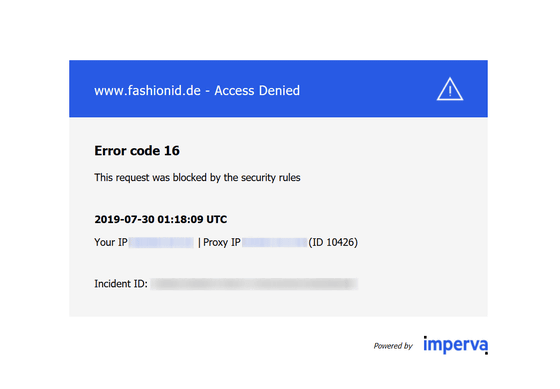European Court of Justice ruling affecting any site that places Facebook's 'Like' button

by
On July 29, 2019, the European Court of Justice, equivalent to the EU Supreme Court, found that the site owner who sent data to Facebook without the consent of the user is liable and has possession of the website Has shown that it may be legally risky if a person installs Facebook's 'Like' button
The operator of a website that features a Facebook 'Like' button can be a controller jointly with Facebook in respect of collection and transmission to Facebook of the personal data of visitors to its website
(PDF) https://curia.europa.eu/jcms/upload/docs/application/pdf/2019-07/cp190099en.pdf

EuGH-Urteil: Like-Button von Facebook nur mit Info an Nutzer | Verbraucherzentrale NRW
https://www.verbraucherzentrale.nrw/aktuelle-meldungen/digitale-welt/eughurteil-likebutton-von-facebook-nur-mit-info-an-nutzer-12029
Europe's top court sharpens guidance for sites using leaky social plug-ins | TechCrunch
https://techcrunch.com/2019/07/29/europes-top-court-sharpens-guidance-for-sites-using-leaky-social-plug-ins/
The German consumer group Verbraucherzentrale Nordrhein-Westfalen has filed a lawsuit against the German clothing retailer Fashion ID. With Fashion ID, when you click the 'Like' button embedded in the product page, users can appeal on the timeline as 'I like this product.' However, regardless of whether or not the button was clicked, the user's personal information was sent to Facebook when the page was visited simply by implementing the button. This specification was previously published by Facebook.
[How nice! What kind of information is sent to Facebook when you visit a site where the button is implemented? | Facebook Help Center
https://www.facebook.com/help/186325668085084
Verbraucherzentrale Nordrhein-Westfalen argues that it is illegal to transfer personal data without the user's consent. The Düsseldorf District Court ruled that the Fashion ID violated the EU General Data Protection Regulations (GDPR) as of March 9, 2016, but did not agree with the result. Appeal to. The High District Court reiterated the decision of whether the 'like' button data collection would conflict with the GDPR to the European Court of Justice to make the decision.

by sergio santos
Facebook's 'Like' button is embedded on various sites on the Internet, but it also plays the role of sending user data to Facebook. This behavior has so far been 'performed without the user noticing it, regardless of whether the user is a Facebook user or not clicking the' Like 'button' and the European Court of Justice The court pointed out.
The website that embeds the 'Like' button sends collected data to the Facebook subsidiary in Ireland, and the website escapes from being responsible for 'User data collected by the' Like 'button. It is said that However, it is clear that in practice the user warns the user on the website that 'we are collecting user data', and data collection should be performed only if consent is given.
The European Court of Justice has ruled that 'With regard to collecting data and transferring it to the network, Fashion ID can be considered jointly with Facebook because it shares the same purpose and means of transferring personal information with Facebook.' He also stated, 'The owner of the website has to notify the user to transfer personal information.' However, the website does not pursue responsibility for how to handle personal information collected by Facebook.
The official site of Fashion ID was blocked by the 'Security rules' and could not be accessed at the time of writing.

According to Monique Goyens of the European Commission , 'This decision gives the user information about what data the user collects and how the website uses it. It is emphasized that you have the right to
Bernard Rohleder, who works for the German government agency Bitkom, which conducts research on informatics, communications and new media, said, 'The European Court of Justice has made this decision from small travel blogs to online megastores and portals of major publishers, It puts a lot of responsibility on thousands of website operators. ' Rohleder warns that the ruling will have a significant impact on all social media plug-ins, not just Facebook.
In addition, Facebook told Technology Media TechCrunch 'We are considering court decisions carefully and with partners we can continue to benefit from social plugins and business tools while complying with the law. 'We will work closely together,' said the statement, suggesting the possibility of changing the 'Like' button specifications so as not to conflict with the GDPR.
Related Posts:
in Web Service, Posted by log1i_yk







